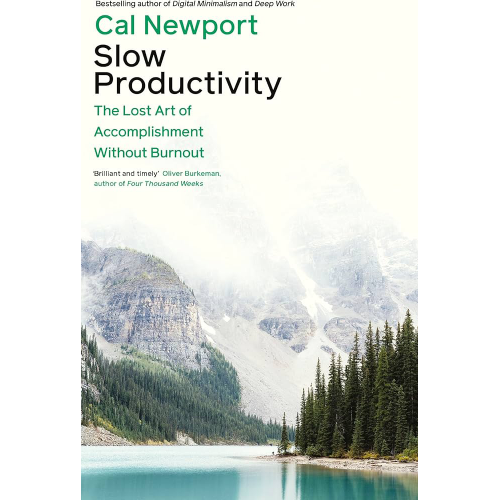Slow Productivity: The Lost Art of Accomplishment Without Burnout
Author: Cal Newport
Publisher: Penguin Business (Mar. 2024)
ISBN – 10: 024165291X
Pages: 256
The author Cal Newport is an Associate Professor of Computer Science at Georgetown University who writes about the intersections of culture and technology. He is the author of eight books, his most recent one being Slow Productivity: The Lost Art of Accomplishment Without Burnout.
In Slow Productivity, the author effectively takes the reader on a journey that charts the birth and growth of the productivity culture and explains how it led to the removal of deep focus, and deliberate care in our work. His book is an opportunity to understand why we so often feel frustrated with the demands of the world we live in and what we can accomplish if we choose to turn inward and focus on what we are doing and achieving.

The author seeks to expound a revolutionary philosophy based on three simple principles:
- Do fewer things.
- Work at a natural pace.
- Obsess over quality.
The reader will explore and examine the stories and habits of ancient and modern scientists, philosophers, artists and scholars who worked in this way, Newport reveals just how transformative the slow productivity approach can be to producing a meaningful body of work.
You will learn to managing your energy according to the season, to identifying which projects to pursue and which to set aside, to building a schedule that yields maximum output with minimum stress, this timely and essential book will revolutionise how you work, helping you to accomplish great things at a more humane pace.
The concept of slow productivity could apply to anybody the overarching ideas are not new (do less, take longer, focus on quality) but the author does give good, concrete suggestions for implementing them. He backs this up with stories about notable people in the past who worked in the manner he suggests.
You will get the most mileage out of Slow Productivity if you are willing to look at it primarily to enhance your own work and you are willing to tailor the suggestions to meet your needs.
